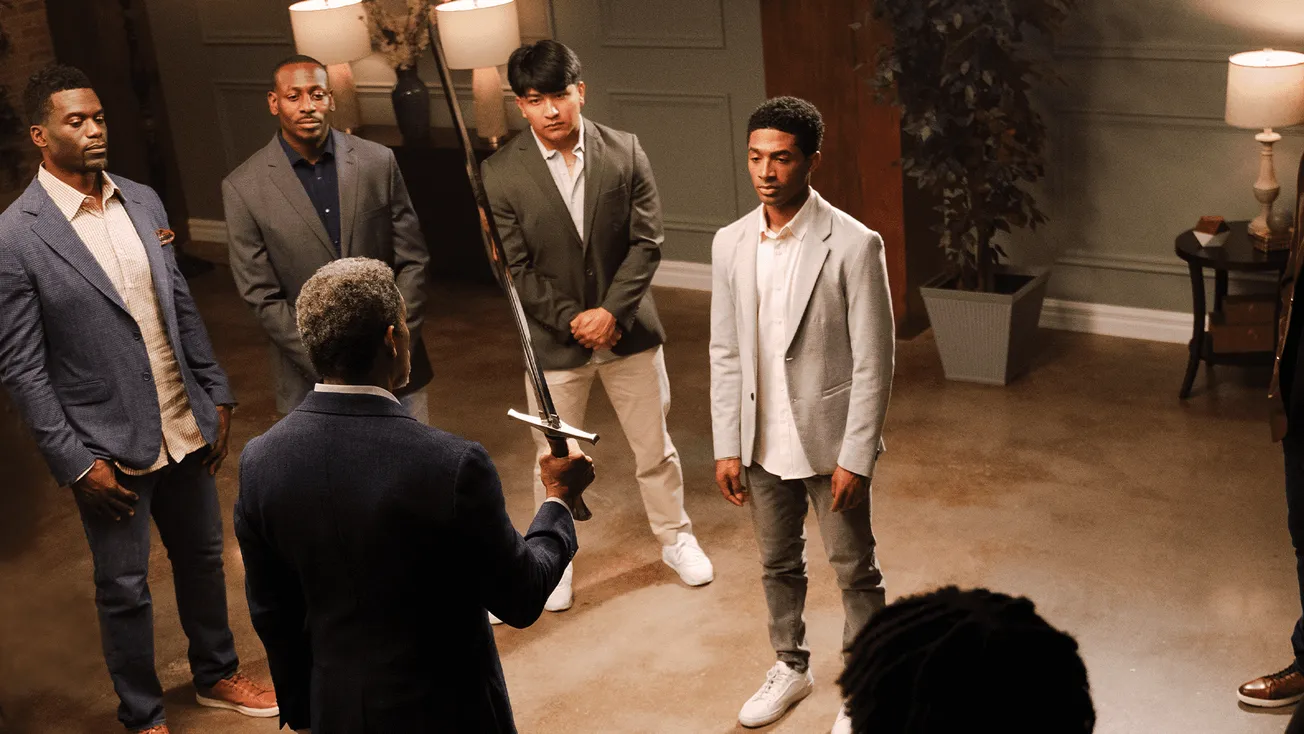“The Forge,” a new film effort from the Kendrick Brothers, is out now in theaters, telling the tale of a Black community in North Carolina leaning on faith to overcome sin, shame, and the travails of young adulthood.
That would be an accurate sales pitch, anyway, but there’s so much more to the story that makes the new flick less than fine.
For the past twenty-plus years, the three brothers’ films have generally operated on a few simple principles: minimal budget, a small and rotating cast of actors (including the writer-director Alex Kendrick), simplified cinematography, and an evangelical-friendly message that pulls no punches.
“The Forge” departs from a few of those dictates, as the brothers’ second film featuring a nearly all-Black cast. It is a spin-off from the 2015 release “War Room,” which like “The Forge” was produced, written, and directed by the Kendricks. The latter, however, does not feature Kendrick in an acting role.
The lead is a newcomer to the Kendricks’ films, Aspen Kennedy, portraying a recent high school grad addicted to video games, girls, and basketball, devoid of an aim in life (or a job) and constantly perturbing his single mother (Priscilla Shirer), who also would like him to take an interest in Christianity. The teen, Isaiah, is not interested and is quickly presented as struggling with authority, boundaries, respect, and his urban attitude and presentation.
Yes, “The Forge” is a Black-presenting Christian film from a group of very conservative White Christian creators about fatherlessness and respectability. I’ll just leave that there.

Those optics aside, the plot is easily digestible, championing redemption, family, community, prayer, and—of course—“Biblical values,” a key component of any Kendrick Brothers film. Isaiah is brought to heel by a number of factors, not least of which is the film’s namesake, a men’s faith-sharing group led by his new employer, the socially refined and faith-filled business owner Joshua Moore (Cameron Arnett), who converts him about halfway into the story. Joshua then counsels Isaiah on how to present himself, avoid conflict, fulfill his commitments, and honor God as a man of duty.
It’s seemingly innocuous, but I couldn’t help but see in this mode of “discipleship” a subtly anti-Black narrative. From the film’s narrative, it is not hard to conclude that to become a good Christian is to be less culturally Black. You must not talk, move, or even flirt in a certain way, lest you be perceived as a threat or a lost cause.
Moreover, just as the Kendrick Brothers’ real-world model of success is an exercise in Christian capitalism, the film presents the solution to Isaiah’s life struggle in terms of an elite group of flashy-dressing men and mentees who meet for prayer in a swanky downtown restaurant. (Hardly replicable for the average American disciple!)
The film’s theology is also questionable in this regard. Isaiah’s salvation experience is of the predictably Protestant variety, featuring a “Romans Road” Bible tract and the sinner’s prayer, but receives little follow-up beyond Joshua’s admonition that he “should get baptized” and join his Forge prayer group.
It was shocking to see a film so heavily based on the Bible omit virtually any mention of suffering as a Christian. “The Forge” speaks of “carrying the Cross” in terms of lost business contracts and the loss of creature comforts to devote more time to Bible study. Isaiah gives up video games after Joshua explains how he gave up golf. (And why were the greens so heinous? For Joshua, it was simple: “I loved it.”)
In one meeting of their prayer group, a participant shared his experience of adversity as part of a divine revelation that God allows hard times only so that he can get the glory for the good times soon to come again. It’s a pleasant thought, to be sure, but not exactly realistic for the many Christians who will continue to struggle until the day they die.
In short, while the film feebly attempts to address the spiritual dilemmas facing young people today, it whiffs on (or even encourages) perhaps the most pernicious of all: moral therapeutic deism.
On a purely cinematic level, “The Forge” is simply nothing to write home about. Arnett gives a strong performance, but the scenery-chewing from Shirer and Kennedy is apparent from the beginning scenes and does not subside.
The final third of the film descended almost completely into the Kendrick Brothers’ stereotypically preachy formula, ending with a montage—practically an infomercial—emphasizing the importance of Christian discipleship. The fictional Isaiah is naturally its quintessential success story, having embraced the faith and become a “good” Black man who now experiences earthly success in every way.
Insofar as that theme is a microcosm of the film overall, if one is looking for a culturally disjointed B-movie that will inspire the heart even at the expense of the mind, “The Forge” is the way to go. If not, though, you might be wasting your time and, ironically enough, your money as well.
Nate Tinner-Williams is co-founder and editor of Black Catholic Messenger.










